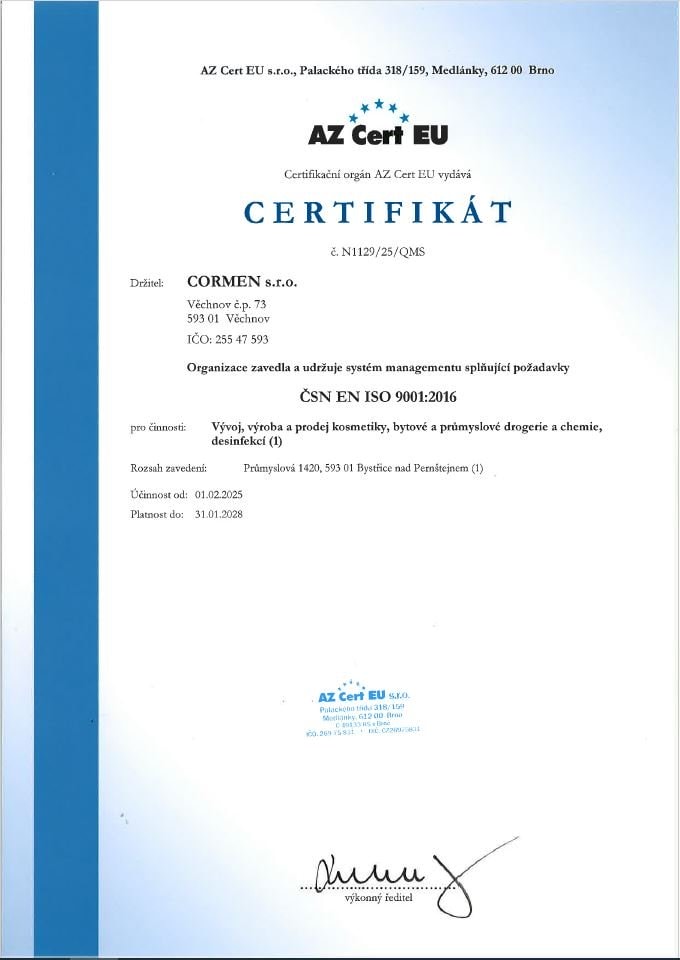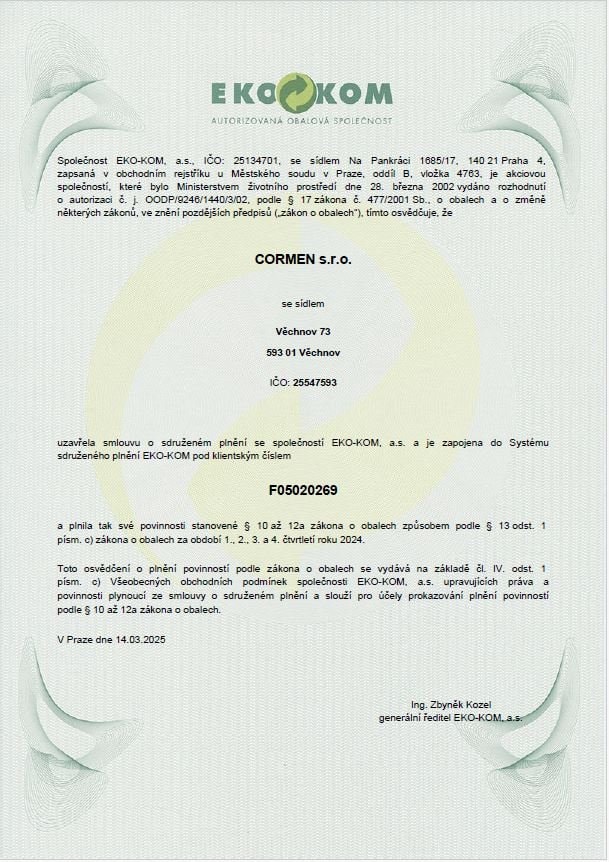Certificates
ISO Certificates
ISO certificates are generally proof that a company guarantees certain characteristics. Each ISO standard sets out what needs to be met to obtain certification and if an audit shows that the company meets the required criteria, a certificate is issued. There are over 18,000 of these standards and each covers a different process management issue. The most widely used standards are ISO 9001 (focusing on quality management) and 14001 (on environmental performance).
EKOKOM certificate
Every business (natural or legal person) that places packaging or packaged products on the market has an obligation to ensure the take-back and recovery of packaging waste.
The law allows 3 ways in which this obligation can be fulfilled.
Self-compliance: means that as an individual you can organise independently the take-back and recovery of packaging material that becomes waste after delivery of the product.
Transfer of the obligation: by transferring the ownership of the packaging, it is possible to transfer the obligation to another person. However, it must be explicitly stated in the contract that the transfer of ownership also implies a transfer of the obligation to put the packaging back into circulation.
The conclusion of a contract with EKO-KOM, a.s.: provides a systemic solution to the above-mentioned transfer of ownership and obligations related to packaging waste.
We are a member of the EKO-KOM system, which is based on the cooperation of industrial enterprises, towns and municipalities, and which ensures that waste from used packaging is sorted by the consumer, transported by collection equipment, re-sorted and used as secondary raw material.
At the same time, we honour the idea that the best packaging waste is that which is not generated at all, and we have introduced a returnable packaging system. As a result, a certain amount of our products have been moved from 5-litre containers to 10 and 20 litre returnable canisters, which we use repeatedly, thus reducing the amount of small packaging that then constitutes plastic waste. In this way, in 2018 alone, we prevented more than 17 tonnes of plastic waste (from the 5-litre canisters we did not produce and instead transported the same volume of products in returnable packaging). Moreover, this figure does not take into account smaller packaging (1 l, 750 ml, 500 ml), which has an even worse ratio between the amount of packaging material needed and the volume of product it transports.
We already have a partial solution for 5-litre packaging. Returning large canisters can sometimes be inconvenient or complicated, and in the case of households or small businesses is inappropriate (a 10-litre canister would take too long to consume). We now fill selected products in 5 litre bags. This reduces the amount of plastic waste by 80% (to a fifth of the weight of the plastic waste in the canisters) and also significantly reduces the logistics required (the same number of containers on 1 pallet of canisters can fit in a box when using bags).


